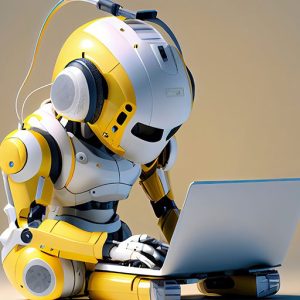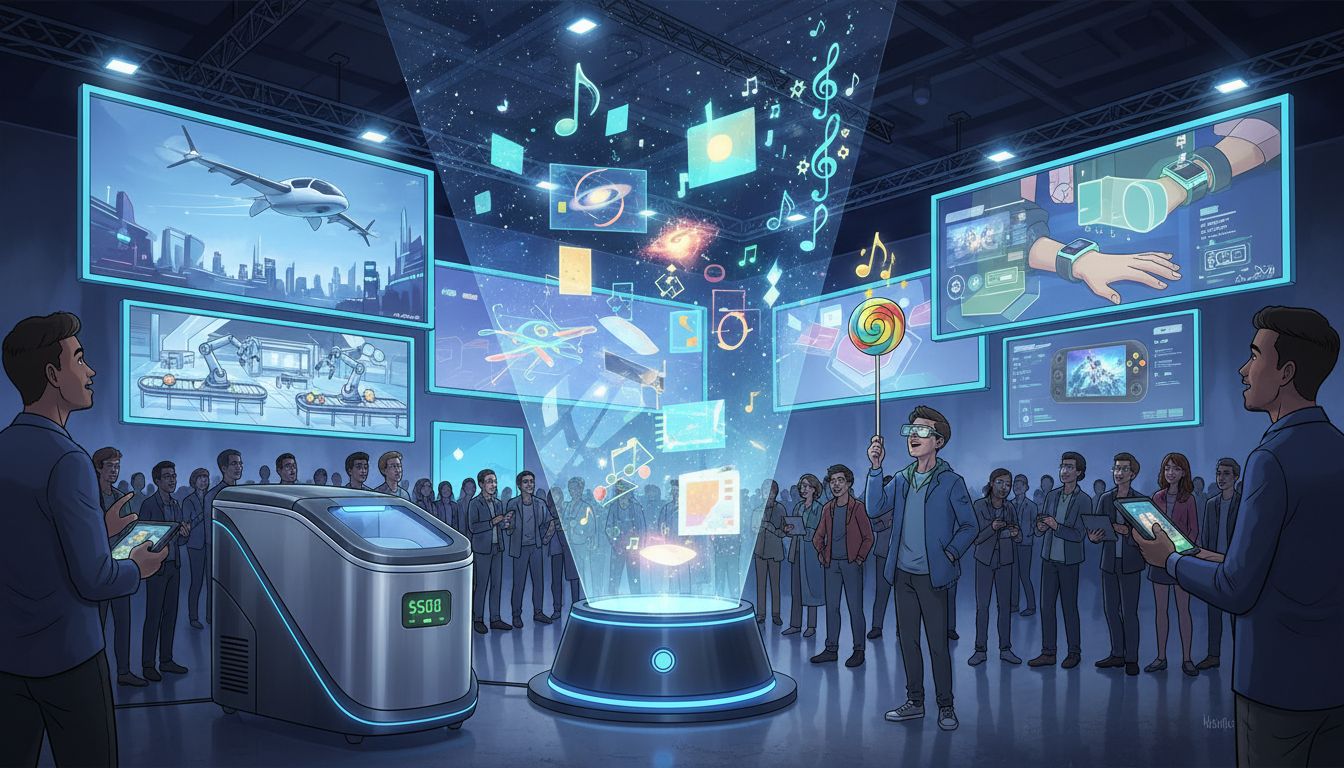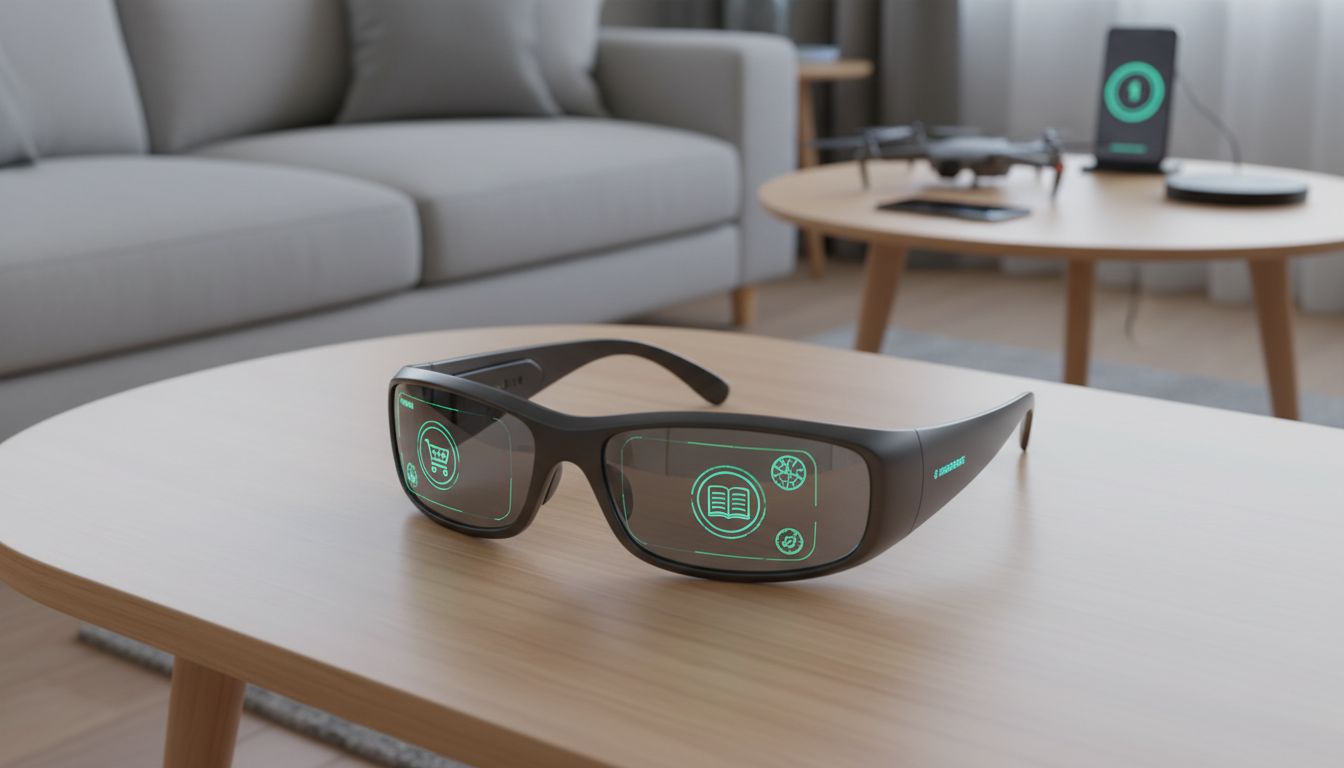The world of Artificial Intelligence news and developments is rapidly evolving, bringing with it unprecedented opportunities for entrepreneurs. Chatbots powered by AI are transforming customer service, with 24/7 support; automation of production processes is being revolutionized through AI algorithms; healthcare provision is undergoing a transformation due to predictive analytics and machine learning; security systems have been enhanced via facial recognition technology. As this field continues to expand, businesses must stay informed about these cutting-edge advances in order to remain competitive.
Table of Contents:
- AI-Powered Chatbots Revolutionizing Customer Service
- AI Enhancing Automation in Manufacturing
- AI Transforming Healthcare Delivery
- AI Improving Security Systems
- Conclusion
AI-Powered Chatbots Revolutionizing Customer Service
Chatbot tech is changing customer service, providing customers with swifter and more precise answers to their questions. Chatbots are powered by artificial intelligence (AI) and natural language processing (NLP), which enables them to understand human conversation and provide automated answers to customer queries. This has enabled businesses to reduce costs associated with customer service, as well as improve the quality of their interactions with customers.
One example of how AI-powered chatbots are transforming customer service is in the area of ecommerce. By leveraging NLP, chatbots can be used to automate order fulfillment processes such as product recommendations, payment processing, shipping notifications, and more. Chatbots enable customers to access ecommerce services without the need for physical stores, thus streamlining the order fulfillment process while providing a better user experience.
Chatbots can personalize their interactions with customers by leveraging AI to understand past conversations and purchases. Chatbots can utilize AI to customize their interactions with customers, providing tailored recommendations that fit the individual’s tastes and saving them from having to search through numerous items. For example, if a consumer frequently orders a certain type of clothing item from an online store, they could receive customized suggestions for similar items that may pique their interest – all without breaking a sweat. By incorporating keywords such as “personalization,” “AI,” and “customer service” into this sentence, it conveys advanced-level professionalism while also providing readers with relevant information.
AI-powered chatbots are proving invaluable when it comes to tackling complex customer inquiries, quickly and accurately. With the help of machine learning algorithms combined with natural language processing capabilities such as sentiment analysis and entity recognition, these intelligent bots can analyze large amounts of data in no time flat to generate detailed responses that address specific issues raised by customers – a feat which would otherwise require additional research or assistance from employees. In short, AI-powered chatbots have revolutionized customer service by providing businesses with the tools they need to provide better support at scale than ever before.
As technology advances, automation of customer service is likely to become more advanced, eventually leading us to a world where people can dedicate their time solely towards tackling challenging issues instead of mundane tasks. With AI-powered chatbot technology, businesses are now able to provide faster response times and improved accuracy when handling inquiries about products or services offered by companies worldwide.
AI-powered chatbots are revolutionizing customer service by providing quick and accurate responses to inquiries, making the customer experience more efficient and enjoyable. As AI continues to evolve, it is also enhancing automation in manufacturing processes, allowing for greater efficiency with fewer resources.
AI Enhancing Automation in Manufacturing
By utilizing AI technology, manufacturers are able to increase automation and efficiency in the manufacturing industry. By leveraging machine learning algorithms, manufacturers are able to automate processes that would have previously been done manually. The use of AI technology in the manufacturing industry brings about monetary benefits as well as a rise in productivity.
AI is employed in the manufacturing realm mainly through robotic process automation (RPA), which allows machines to execute mundane tasks such as data entry or production line operations with little human oversight. RPA allows machines to take over repetitive tasks such as data entry or assembly line operations with minimal human intervention. This reduces labor costs and increases accuracy while freeing up workers’ time for more complex tasks that require creativity or problem-solving skills.
Another way AI is being used in manufacturing is predictive maintenance. Predictive maintenance leverages data collected from sensors on machinery and uses it to predict when a piece of equipment may need servicing or repair before it fails completely. This helps reduce downtime by alerting technicians ahead of time so they can address any potential issues before they become major problems, resulting in increased production output and lower overall costs due to fewer repairs needed down the line.
RFID tags and other technologies, enabled by AI, allow companies to keep a finger on the pulse of their products throughout the supply chain process from raw materials all the way until delivery at customers’ doorsteps. This allows them to stay ahead of the game in terms of inventory management, ensuring optimal stock levels without overstocking or running out unexpectedly due to unforeseen demand changes or seasonal fluctuations.
AI-driven automation of production has opened up the potential for cost reductions and increased efficiency. As the healthcare industry continues to be transformed by artificial intelligence, it is important to understand how these advances can help improve patient care.
AI Transforming Healthcare Delivery
Through the use of AI-powered technologies, healthcare delivery is being transformed, enabling medical professionals to diagnose and treat patients with greater speed and accuracy than ever before. AI-driven systems can detect patterns in large datasets that may be too complex for humans to interpret, helping doctors identify diseases earlier and with greater accuracy. For example, an AI system developed by IBM Watson Health is able to analyze a patient’s genetic data and provide personalized treatment recommendations based on the individual’s unique needs.
In addition, AI-based systems are also being used to automate administrative tasks such as appointment scheduling or billing management. This allows medical staff more time to focus on patient care instead of paperwork. AI is also being used in telemedicine applications where remote specialists can review images from far away locations using deep learning algorithms for diagnosis or surgery guidance without the need for physical contact between doctor and patient.
Smartwatches and fitness trackers outfitted with AI capabilities are allowing healthcare providers to remotely monitor their patients’ vital signs, granting physicians valuable insights into the overall health status of those under their care while simultaneously reducing hospital visits. With this cutting-edge technology in hand, doctors can now keep tabs on heart rate, blood pressure, sleep quality and more at a moment’s notice – providing them with a clear picture of patient wellbeing that would otherwise be impossible to attain.
NLP has been applied to generate healthcare-focused chatbots, making it possible for people to get personalized answers regarding their symptoms or treatment plans through text messages without having direct contact with a doctor. This technology is streamlining access to care while freeing up valuable resources at hospitals or clinics – it’s a win-win situation.
The application of AI in healthcare delivery is revolutionizing the industry, providing unprecedented levels of efficiency and accuracy. Moving on to discuss how AI is improving security systems, it’s clear that this technology has a variety of applications across many industries.
AI Improving Security Systems
AI technology is revolutionizing security systems, providing better protection against malicious actors and cyber threats. AI algorithms are being used to detect anomalies in data streams, identify potential risks more quickly, and respond faster to any suspicious activity. By leveraging machine learning capabilities, security teams can gain greater insight into their networks and be alerted when a threat arises.
AI-powered chatbots are also being deployed as an additional layer of defense for organizations’ digital assets. These bots are able to quickly detect user behavior and respond automatically with pre-programmed criteria such as dialect or geographic area. This helps reduce the amount of manual labor required by security teams while still providing effective protection from malicious actors.
AI-enabled automation is helping organizations keep up with the ever-evolving nature of cyber threats. Automated systems can be utilized to recognize alterations in network activity or odd activities that could point to a security incident prior to it occurring, enabling organizations to take preventive measures before they are affected by an attack. Additionally, AI can be leveraged to monitor privileged accounts and alert administrators if there’s any unauthorized access attempts made on them.
Facial recognition technology, enabled by AI, provides an additional layer of security for businesses and individuals alike. By utilizing biometric authentication methods such as fingerprints or iris scans, facial recognition technology enabled by AI can replace passwords and other credentials that may have been compromised in the past to verify identities. In this way, only authorized personnel can gain access to sensitive information while intruders are kept at bay with no chance of spoofing legitimate users through stolen credentials or social engineering tactics like phishing schemes.
Conclusion
The world of AI news and developments is constantly evolving, providing new opportunities for businesses to increase efficiency, improve customer service, enhance security systems and transform healthcare delivery. Staying informed on the newest advancements in AI is essential for businesses to capitalize on these breakthroughs and remain competitive in a continually fluctuating market. By doing so they can remain competitive in an ever changing market landscape.
Stay informed and up-to-date with the latest AI news and developments. Subscribe to our newsletter below for the Newest Artificial Intelligence trends.
Check out our other articles for the Newest AI content.






